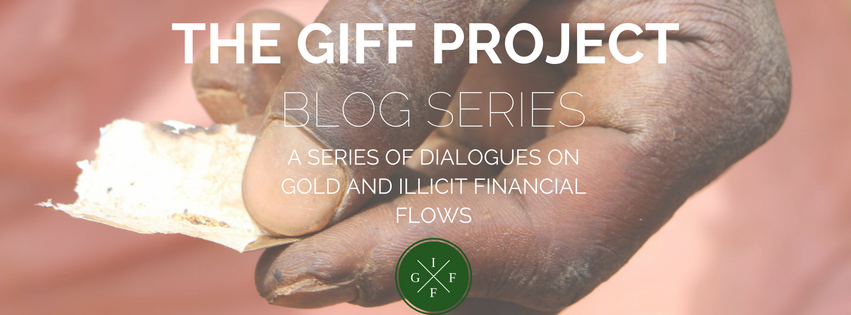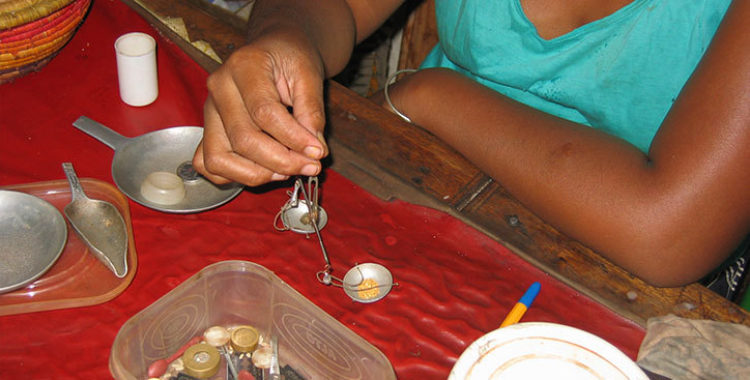
A mining company’s view on illicit activity around gold in West Africa, and the importance of trust in building strong community relations
My relationship with illicit financial flows (IFFs) is less as an expert, and more as a victim of the problems associated with them. I have worked in the mining sector in a field-based role for a number of years. I started in the 2000s in Burkina Faso, and have consequently witnessed the structures to fight fraud and combat IFFs change considerably in this one country alone.
I remember how once in the North of Burkina Faso, several years ago, I met someone laundering money in the name of al Qaeda. We had shared the same accommodation- and even discussed their gold buying processes.
Despite these efforts, there has been no government financing to make these structures genuinely effective. During my work as a prospector, I visited numerous artisanal mine sites—many informal, often rudimentary. It was there that I was confronted with the reality of ASM and IFFs.
I remember how once in the North of Burkina Faso, several years ago, I met someone laundering money in the name of Al-Qaida. We had shared the same accommodation- and even discussed their gold buying processes. At other points, I have met Colombians laundering money for a drug cartel. This is the reality in the field.
The extent of corruption and smuggling can be illustrated through the example of Togo. An enormous quantity of contraband gold passes through Togo. In 2007, for example, Togo officially exported approximately 900 kilos of gold. The same year, Burkina Faso officially exported around 72 kilos of gold; and yet Togo does not produce gold.
Criminal groups in the field
Certain realities do, however, continue to exist. I am less present in Burkina Faso these days. Without doubt, though, the same challenges continue to take place today. A profound problem—which for me in the field poses the same difficulties as fraud, smuggling and illicit financial flows—is the financial groups in Burkina Faso.
They are well established in the capital, Ouagadougou, and possess substantial funds. They buy in the field, close to the source. They operate near, and purchase from, the artisanal gold miners, regardless of the miners’ legality. They acquire gross quantities of gold, paying above market price and sometimes even higher than the LBMA fix.
This is a serious problem. When they work with artisanal gold miners, it becomes near impossible to then buy their gold at a matched, or similar, price. This state of affairs thus maintains the state of informality, and criminality, in supply chain networks.
We have the advantage of producing our own gold, so we are not dependent on the buying and selling of gold from artisanal gold miners. However, in the areas in which we work, we can have serious problems with the community of artisanal gold miners if we don’t take an efficacious approach to integration.
Our Approach – the community
We create a dynamic relationship with the community based on continuing exchanges and a genuine commitment to dialogue. This is a long term strategy.
Our Approach- the artisanal gold miners
With regard to artisanal gold miners, although we work on a geological area which belongs to us, we share the benefits of our research. Whilst mineral veins are defined and demarcated, we provide zones for the artisanal gold miners. We offer to partner with them in their activities—from the planning of exploitation, to the treatment of the mineral. We make tools available in a secure environment, such as crushers or grinders used under the control and guidance of our teams and partners. We try to work in harmony with the ASGM workers in our areas.
We try to counteract these extremely powerful financial groups, who have a tendency of distorting the national gold market. To do so, we buy the gold from the artisanal gold miners working in our licensed areas. We don’t buy all of their production, but rather we offer a good deal. We propose buying 50 percent of ASGM production. The rest of their output is sold at the price they want, and often with a premium necessary for them and their families.
It is necessary to understand that the majority of the financial groups who buy the gold with an important premium do so with the aim of stocking up on gold, and speculating on market price. I do not think this is illicit, but the impacts on relations (particularly ours) with the artisanal gold miners, as well as on the markets themselves, are very negative.
A long term strategy
Our leader at one of our sites, Jérémie, once realised that a significant part of the artisanal gold miners’ productions was eluding us, leaving via the networks previously mentioned. Knowing this, Jérémie continued to invest in the local community and artisanal gold miners. After several months, the same gold miners found Jérémie in order to admit that the process was not fair, and that from that point on onwards, they would like to sell their production to us.
We have therefore been able to benefit from this loyal relationship with the artisanal gold miners in the long term. This dynamic of trust, investment, and involvement with the community, for us as a mining company has been the best means to i) guarantee access to the market of artisanal gold production, ii) to influence their practices, iii) accompany the communities towards a better quality of life, and finally, iv) combat the practices of certain groups who pose a serious threat to governments and society today.
Etienne Atger is the Managing Director of Barksanem Ltd., a mining company in Burkina Faso that is in its early stages of development. Etienne is a specialist on sustainable development issues in Africa and previously served as CEO to two mining companies in Burkina Faso.
The GIFF Project is a joint initiative with the Global Initiative against Transnational Organised Crime. It enables practitioners to investigate and map financial flows linked to the ASM gold sector and strengthen programme design and policy formulation.



